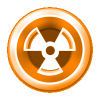Building EDuke32 on Linux
Compiling From Source
Installation Notes
- You need an actual copy of Duke Nukem 3D. The shareware vesion can be found here. [1]
- Proper 3d acceleration drivers. NVIDIA has classically had the best linux drivers. Ubuntu/Debian can use
envyng. - Proper MIDI install. The eduke32 will appear to "randomly" crash without one. Use
timidityfor an easy software midi solution.
Acquire & unzip the source packages
You need the eduke32 source source files. Download them to from here. Once you have download it unzip it. You should have a folder like "eduke32_src_xxxx".
Prerequisites for the build
Linux needs some packages installed before you can properly build.
- basic dev environment (gcc, make, etc); Ubuntu package build-essential
- SDL development & runtime files (ubuntu packages libsdl1.2-dev libsdl-mixer1.2-dev)
- nasm
- libstdc++ (part of build-essential)
Build the EDuke32
In a terminal window move to the "duke3d" folder and type make.
NOTE: with eduke32_src_20080924 and newer gcc versions (4.2.3) remove; -finline-small-functions -fpredictive-commoning options from debug= options in eduke32/Makefile and build/Makefile
Confirm successful compile
These files should now be present in the eduke32 directory.
- mapster32.sym
- mapster32 (executable)
- eduke32.sym
- eduke32 (exectuable)
Use the game files
You need to have the original Duke Nukem files and the newly created EDuke32 executables in the same place. So, you could create a new folder (example eduke32_linux) and copy the original game files and the newly created EDuke32 executables there.
Run the game!
To run the game open up a terminal window, move to the proper directory and type:
./eduke32
Installing EDuke32 globally
Why
Installing EDuke32 as an application that you could run anywhere brings some useful advantages and is surprisingly easy to do.
EDuke32 will use the directory you are currently in as the directory to work in, as well as ~/.eduke32 (/home/yourname/.eduke32). This means that you could have a directory, copy a Duke Nukem TC (or mod) in there, cd to that directory and run the global EDuke32 binary without having to make even more copies of the same EDuke32 binaries. EDuke32 will adapt to use the GAME/USER.CON files it finds in the CURRENT directory.
How
All you'll have to do to get EDuke32 to run from anywhere is copy the eduke32 and mapster32 binaries to /usr/bin. After doing this, copy (or move) the Duke Nukem GRP file to /home/yourusername/.eduke32 (it's hidden, so try to cd to it or show hidden files). After this you'll be able to run EDuke32 from any directory on your hard disk!
Notes
Lowercase/Uppercase problems
Shareware If you are using the Shareware files located on the 3D Realms website, after you build and combine all the files into one folder and try to run the game you will get an error about the TABLES.DAT file. To correct the error simply rename the DUKE3D.GRP to all lowercase letter. After that the game should run.
Maps with extra resources Some maps that include extra resources might have trouble finding these new files (for example, an older version of Duke Plus won't be able to find Step#.wav and Grate#.wav sounds). The EDuke32 log will output a "file not found" error every time this happens. To fix this, change the names of these files to match the exact case given in EDuke32's log (for example, GRATE#.wav instead of Grate#.wav).
ART file inconsistency While most standard resources are referred to as UPPERCASE by EDuke32 (for example, GAME.CON), ART files are not as consistent and should be renamed to lowercase if you want to use custom art (tiles014.art instead of TILES014.ART).
Running with HRP Notes
Running EDuke32 with an ATI card is slow for some reason. Even though most ATI cards are supported in Linux nowadays.
